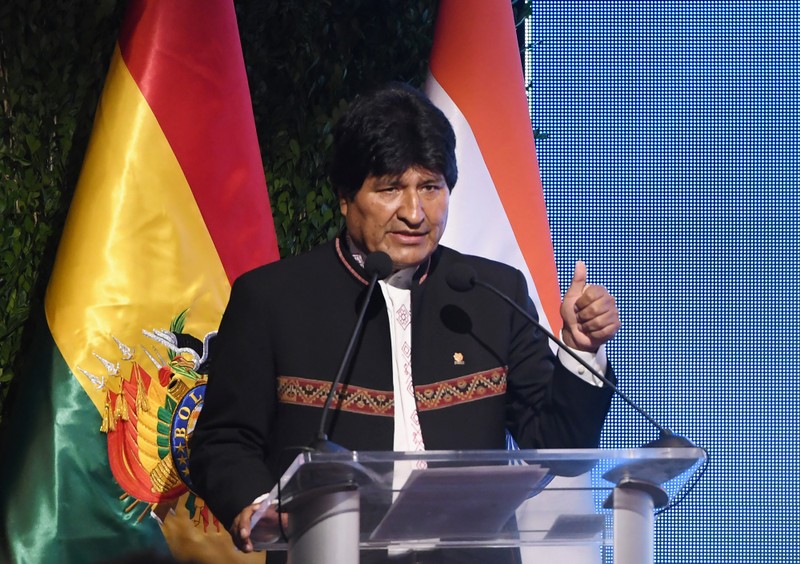
FILE PHOTO: Bolivia’s President Evo Morales speaks during a meeting with India’s President Ram Nath Kovind in Santa Cruz, Bolivia, March 29, 2019. REUTERS/Rodrigo Urzagasti
May 18, 2019
By Daniel Ramos
LA PAZ (Reuters) – Bolivian President Evo Morales launched his campaign for a fourth term on Saturday in a remote coca-growing valley without addressing the biggest controversy in his bid – the fact that he is running at all.
Morales, who became the country’s first indigenous president in 2006, is defying constitutional term limits. In 2016, voters rejected his proposal to amend the constitution to let him seek another five-year term this year. He later won a court ruling allowing him to run on the grounds that barring him would violate human rights.
Speaking before tens of thousands of people in the province of Chapare – where he first entered politics as a leader of coca farmers – Morales promised on Saturday to bring factories to rural areas and tap the country’s potential as a major lithium producer.
“We’re better than before, sisters and brothers,” Morales told the cheering crowd in a televised speech.
One of the remaining leaders of the so-called pink tide of leftists who swept into office in South America earlier this century, Morales has remade Bolivia’s status quo since taking office 13 years ago.
He has nationalized strategic resources while overseeing robust growth, cut poverty, empowered once-marginalized Aymara Indians and railed against U.S.-backed policies to control coca, an Andean crop that can be used to make cocaine.
“We still have a lot to do. Following the nationalizations, we have now started with industrialization,” Morales said.
Morales’ party has argued that gains for ordinary Bolivians would be erased if the rightwing opposition takes power, and voters should be able to decide.
On the eve of his campaign launch, Morales secured the blessing of the head of the Organization of American States, infuriating his critics who see Morales as a threat to Bolivia’s democracy.
“To say that Evo Morales can’t participate is absolutely discriminatory considering other presidents who have taken part in electoral processes on the grounds of a court ruling,” Luis Almagro, the secretary general of the Organization of American States, said in televised comments during a visit to Chapare.
So far, Morales is leading with 33% support compared to his closest opponent, Carlos Mesa, at 25 percent, according to the latest Ipsos survey. But 20% of Bolivians are undecided and Morales’ once-solid popularity has slipped.
The place he chose to kick off his campaign hinted at growing polarization in the landlocked country of 11 million people. A 12-hour drive from the capital La Paz, Chapare is far from the cities where Morales’ public appearances are sometimes dogged by protests.
If no candidate wins at least 50% of the vote in the Oct. 20 election – or 40% with at least a 10-point lead over the runner-up – a run-off race will be held in December.
In 2005, Morales won the election with 54% of the vote in the first-round and was re-elected in 2009 and 2014 with more than 60%. Morales has said this year he wants to win the election outright with 70% of the vote.
(Reporting By Daniel Ramos, Writing By Mitra Taj; Editing by Cynthia Osterman)

